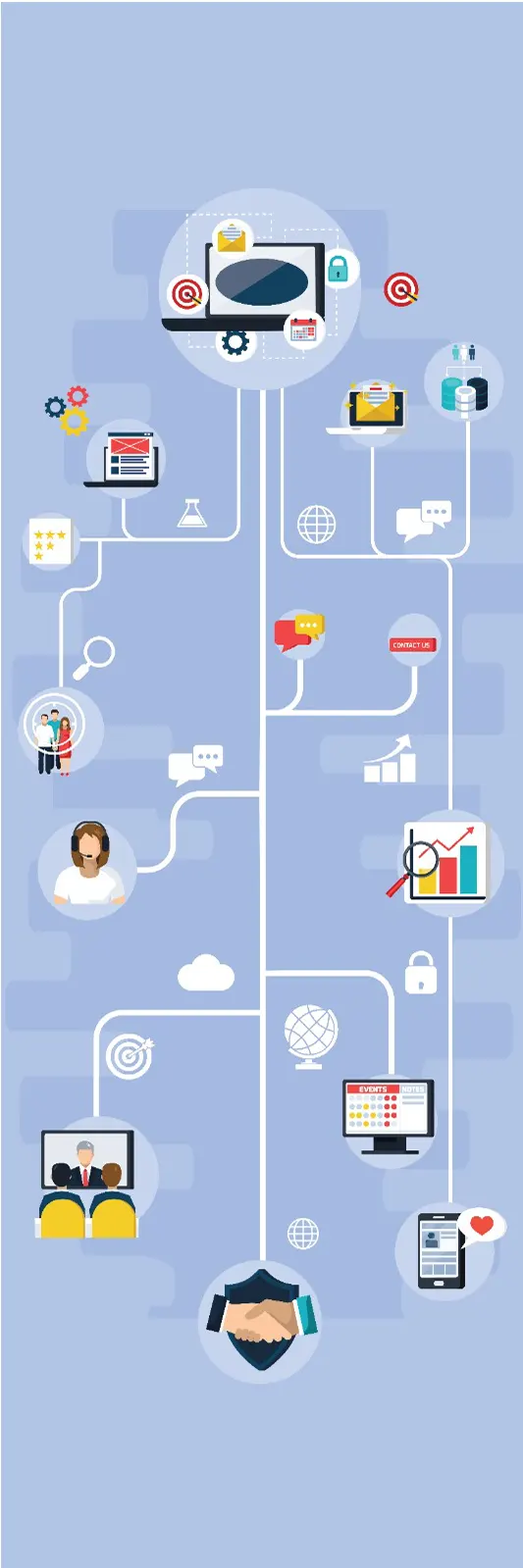Introduction
Rockstar Games, a subsidiary of Take-Two Interactive, is renowned for its critically acclaimed Grand Theft Auto (GTA) series. The anticipation for GTA 6, the latest installment, has been immense. This case study examines the comprehensive marketing campaign for GTA 6 and its significant impact on Rockstar Games' business growth.

Pre-Announcement Strategies
Teasers and Leaks:
Rockstar employed a strategy of controlled leaks and teasers to build anticipation. This method not only generated immense buzz but also engaged the community in speculation, theories, and discussions, keeping GTA 6 trending on various platforms.
Community Engagement:
Engaging the community through forums, social media, and events helped Rockstar gauge player expectations and build a loyal fan base. The company frequently interacted with fans, fostering a sense of inclusion and anticipation.
Official Announcement and Trailers
Grand Reveal:
The official announcement was strategically timed to coincide with major gaming events like E3. Rockstar unveiled an electrifying trailer showcasing GTA 6’s new features, setting, and storyline, capturing global attention.
Cinematic Quality Trailers:
Rockstar is known for its high-quality, cinematic trailers. The GTA 6 trailers highlighted the game's stunning graphics, immersive world, and compelling narrative, generating excitement and media coverage.
Digital Marketing and Social Media Strategy
Social Media Blitz:
Rockstar leveraged platforms like YouTube, Twitter, Instagram, and TikTok to release teasers, gameplay snippets, and developer insights. Hashtags like #GTA6 and #RockstarGames trended globally, enhancing visibility.
Influencer Partnerships:
Collaborating with popular gaming influencers and streamers expanded the game's reach. Influencers were given early access to the game, generating authentic reviews and gameplay streams that further fueled anticipation.
Innovative Marketing Tactics
Augmented Reality (AR) Experiences:
Rockstar introduced AR experiences, allowing fans to interact with elements of GTA 6 in the real world. This immersive marketing tactic created a buzz and provided a unique way for fans to engage with the game.
Interactive Website and Apps:
The GTA 6 website featured interactive elements, including mini-games, developer diaries, and community forums. Rockstar also launched a companion app offering exclusive content, updates, and behind-the-scenes insights.
Traditional Marketing Channels
Television and Print Ads:
Despite the digital focus, Rockstar didn’t neglect traditional channels. High-impact TV ads during major sporting events and print ads in leading gaming magazines ensured broad reach.
Billboards and Outdoor Advertising:
Iconic locations in major cities were adorned with GTA 6 billboards and posters. This outdoor advertising strategy created a visual presence that was hard to miss, reinforcing the game's imminent release.
Pre-Order Campaigns and Limited Editions
Pre-Order Bonuses:
Offering exclusive in-game content, merchandise, and early access incentives drove pre-orders. This strategy not only ensured significant upfront revenue but also created a sense of urgency among fans.
Limited Edition Packages:
Rockstar released limited edition bundles featuring collectibles, art books, and exclusive in-game items. These packages catered to hardcore fans and collectors, generating additional revenue streams.
Post-Launch Strategies
Continuous Content Updates:
Post-launch, Rockstar committed to regular content updates, including new missions, characters, and events. This strategy ensured sustained engagement and longevity for GTA 6.
Community Events and Competitions:
Organizing community events, online competitions, and collaborations kept the player base active and engaged. These activities not only maintained interest but also fostered a vibrant online community.
Impact on Business Growth
Revenue Surge:
The successful marketing campaign resulted in record-breaking pre-orders and sales, significantly boosting Rockstar’s revenue. GTA 6 became one of the fastest-selling games in history, reinforcing Rockstar’s market dominance.
Brand Strengthening:
The innovative and engaging marketing strategies enhanced Rockstar’s brand image. The company was praised for its creativity and ability to deliver compelling content, solidifying its reputation in the gaming industry.
Market Expansion:
GTA 6's success enabled Rockstar to expand its market reach. The game attracted not only hardcore gamers but also casual players, broadening the audience base and driving long-term growth.
Stock Market Performance:
Take-Two Interactive, Rockstar’s parent company, saw a significant rise in stock value post-GTA 6 launch. The game’s success translated to increased investor confidence and higher market capitalization.
Increased Player Engagement:
The continuous content updates and community engagement strategies resulted in sustained player engagement. Active monthly users for GTA 6 remained high, contributing to ongoing in-game purchases and microtransactions.
Conclusion
The marketing campaign for GTA 6 was a masterclass in strategic planning and execution. By combining innovative digital tactics with traditional marketing methods, Rockstar Games successfully built unprecedented hype and delivered record-breaking sales. The impact on business growth was profound, with substantial revenue gains, brand strengthening, market expansion, and increased investor confidence. GTA 6 not only reaffirmed Rockstar’s position as a leading game developer but also set new benchmarks for marketing excellence in the gaming industry.













